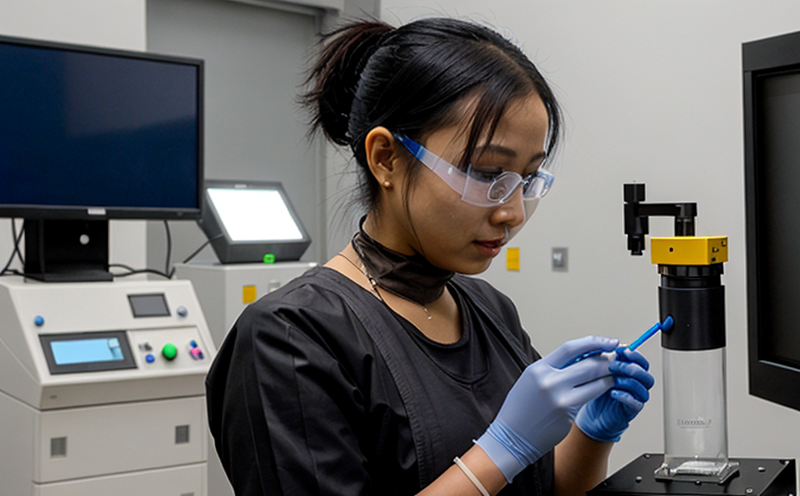ISO 12099 Soil Analysis for Nanoparticles by Spectroscopic Methods
The ISO 12099 standard provides a comprehensive framework for the analysis of nanoparticles in soil using spectroscopic methods. This service is critical for environmental testing laboratories aiming to ensure that nanomaterials used in various applications do not pose harmful effects on the environment.
ISO 12099 specifies procedures for determining the presence and concentration of nanoparticles within soil samples through a series of defined steps that include sample preparation, digestion processes, and subsequent spectroscopic analysis. The standard ensures consistent results across different laboratories by providing detailed protocols and acceptable ranges for various parameters.
The importance of this service cannot be overstated given the increasing use of nanomaterials in diverse industries such as pharmaceuticals, electronics, and construction materials. Properly conducted soil analyses help regulatory bodies monitor compliance with environmental regulations and protect public health.
Our laboratory adheres strictly to ISO 12099 guidelines when performing these tests. Our team of experts ensures accurate measurements by employing state-of-the-art spectroscopic equipment calibrated according to international standards. We also provide detailed reports that include raw data, calculated concentrations, and interpretations based on relevant scientific literature.
Understanding the behavior of nanoparticles in soil is crucial for predicting potential risks they might pose during their lifecycle. By offering this service, we enable clients across various sectors to make informed decisions regarding material selection and waste management practices.
To further illustrate how ISO 12099 applies in practice, let's consider a hypothetical scenario involving the development of a new biodegradable polymer intended for use in agricultural applications:
- The manufacturer wants to ensure that their product does not accumulate harmful amounts of nanoparticles in soil over time.
- They need accurate measurements of nanoparticle concentrations both before and after exposure tests conducted under controlled conditions.
In this case, our laboratory would follow the procedures outlined in ISO 12099 to analyze soil samples taken from plots where the polymer has been tested. Using advanced spectroscopic techniques like X-ray fluorescence (XRF) or laser ablation inductively coupled plasma mass spectrometry (LA-ICP-MS), we can detect even trace levels of nanoparticles down to nanogram-per-liter sensitivity.
Our expertise lies not only in executing the required analyses but also in providing insights into the implications of our findings. For instance, if high concentrations of certain types of nanoparticles are detected, we can advise on potential mitigation strategies such as adjusting production processes or developing alternative formulations.
This level of detailed analysis is essential for maintaining sustainable practices throughout product lifecycles while ensuring compliance with local and international environmental regulations.
For more information about our capabilities in this area or to discuss how ISO 12099 soil analyses could benefit your organization, please contact us directly.
| Applied Standards |
|---|
| ISO 12099-3:2014 - Soil quality -- Determination of nanoparticles by spectroscopic methods |
Industry Applications
- Pharmaceutical companies developing nanomedicines for topical or oral administration.
- Electronics manufacturers exploring the use of nanoparticle coatings in semiconductors and other electronic devices.
- Construction firms investigating innovative ways to enhance concrete durability through the incorporation of nano-scale additives.
In each case, understanding the fate and transport properties of nanoparticles in soil is vital for assessing their environmental impact. Our ISO 12099-compliant analyses play a key role in providing this critical information.
Quality and Reliability Assurance
- We maintain accreditation from reputable organizations such as ANSI, A2LA, and UKAS to ensure the highest levels of quality assurance.
- All personnel involved in performing ISO 12099 soil analyses undergo rigorous training programs conducted by industry leaders.
These measures guarantee that every analysis we conduct meets or exceeds international standards, giving you peace of mind knowing your results are reliable and valid.





